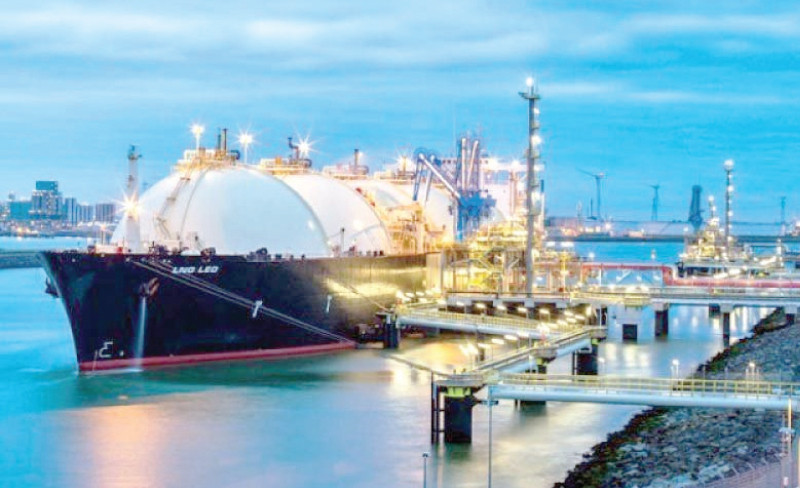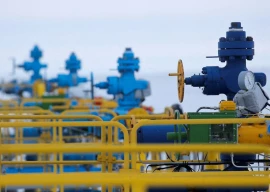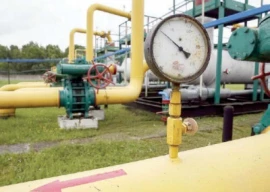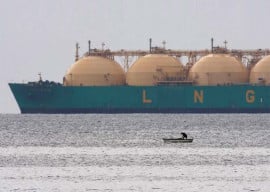
In the face of resistance from the Sindh province, the caretaker government is aiming to recoup Rs232 billion, representing the cost of diverting expensive Liquified Natural Gas (LNG) supply to domestic consumers from January 1, 2024.
The gas utility, Sui Northern Gas Pipelines Limited (SNGPL), had redirected costly LNG to domestic consumers during winter seasons to address gas crises as per federal government directives. However, the absence of a legal framework hindered the recovery of LNG prices.
The previous Pakistan Tehreek-e-Insaf (PTI) government had passed a bill on the weighted average cost of gas in Parliament to recover LNG prices from domestic consumers. This bill faced a challenge in the Sindh High Court, with the Sindh government joining the opposition.
Now, the caretaker government has directed the regulator to recover the Rs232 billion gas price from consumers during the revenue requirements determination in January 2024.
In addition to outstanding bills, SNGPL is expected to face an additional bill of around Rs70 billion during the current winter season. The caretaker government follows the precedent set by previous administrations, diverting expensive LNG to domestic consumers during winters to address gas crises, incurring an estimated cost of Rs70 billion.
Implementation of WACOG Bill
The previous government had approved the Weighted Average Cost of Gas (WACOG) bill to recover the full cost of LNG from consumers. However, this move faced legal challenges, particularly from the Sindh government, which seeks cheaper gas supplies for its consumers.
Read LNG imports set to hit 18-month high
The federal government aims to implement the WACOG bill in phases, starting with industries before extending it to the domestic sector. Sources indicate that the gas sector is in jeopardy due to the depletion of indigenous gas. With no major gas discoveries in the last decades and an average depletion rate of 9% per year, the country has become a net importer of LNG.
Government officials warn that failure to implement the WACOG bill and recover the full price of LNG could lead to the financial collapse of gas utilities, including SNGPL and Sui Southern Gas Company (SSGC).
The caretaker government, claiming to have frozen circular debt, recently announced a 139% increase in gas prices. However, the total circular debt in the energy sector stands at Rs4.5 trillion without interest payments, with Rs2.1 trillion in the gas sector and Rs 2.3trillion in the power sector.
Despite these measures, circular debt continues to rise, exacerbated by the diversion of LNG to the domestic sector in recent winter seasons. The Pakistan State Oil (PSO) is owed over Rs800 billion by its clients, while LNG is owed Rs519 billion due to non-recovery from consumers.
The Economic Coordination Committee (ECC) recently approved the supply of expensive LNG to two fertiliser plants, adding another debt of Rs15 billion. Although the actual cost of LNG is Rs3600 mmcfd, the caretaker government decided to supply it to fertiliser plants at the rate of Rs1239 per mmbtu, contributing to another debt expected to be recovered from gas consumers in the revenue requirements determination for gas utilities in January 2024.
In addition, fertiliser plants, which previously received cheaper gas, saw the price of urea rise to Rs5000 per bag, up from the earlier price of Rs3000 per bag. Furthermore, fertiliser manufacturers pocketed billions in Gas Infrastructure Development Cess (GIDC) but failed to deposit these funds into the national exchequer.
Published in The Express Tribune, December 27th, 2023.
Like Business on Facebook, follow @TribuneBiz on Twitter to stay informed and join in the conversation.

1719315628-0/BeFunky-collage-(8)1719315628-0-405x300.webp)


1731329418-0/BeFunky-collage-(39)1731329418-0-165x106.webp)















COMMENTS
Comments are moderated and generally will be posted if they are on-topic and not abusive.
For more information, please see our Comments FAQ